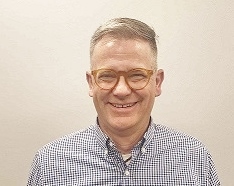Stonewall
As Pride Month comes to a close, I wish to acknowledge a historic marker in the ongoing fight for gay rights – the anniversary of the 1969 Stonewall Riots in Greenwich Village, New York. The riots are why June is Pride Month.
The backdrop of this touchstone toward gay rights is not complex. Gay rights 55 years ago were virtually nonexistent. Frankly, it was pretty much illegal to be gay. New York prohibited public displays of affection within same-sex couples. New York police routinely harassed gay bars and their patrons. Greenwich Village was the birthplace of 1960s counterculture, hence the perfect incubator for the modern LGBT movement. The Stonewall Inn on Lower Manhattan’s west side was the most popular gay bar in NYC, probably because it allowed dancing. Its many transgender patrons prompted frequent police raids to enforce a ban on crossdressing.
Early June 28, 1969, police raided the Stonewall Inn. As patrons fought back, police sensed they were in danger and barricaded themselves inside the bar. As word spread the crowd grew until reinforcements arrived to disperse them. The riots resumed the next night, however, and for several nights after.
According to the National Alliance on Mental Illness, it is important to recognize how one’s experience of sexual orientation and gender identity relates to their mental health. Recent research suggests that members of the LGBTQIA+ community are more likely to experience mental health conditions, especially depression and anxiety. Transgender individuals are significantly more at risk than cisgender individuals. LGBTQIA+ youths experience a greater risk for adverse mental health conditions and suicide.
People should feel free to be themselves without fear of rejection, abuse or marginalization. The trauma of having to constantly hurdle such obstacles can lead to substance use disorder, homelessness and suicide, especially among young people.
I am proud of my friends and acquaintances who occupy space in the LGBTQIA+ community. They face barriers I will never know, including wondering who will accept them as themselves. I struggle with the thought that revealing their true identity at the wrong time, in the wrong place, could lead to their demise. We can change that reality simply by listening with an open mind, asking someone about their identity instead of making assumptions, learning for our mistakes and continuously learning to be an ally.
Similarly, I am proud of my own growth relative to LGBTQIA+. People are people. Love is love. You be you. You are enough. Although it took me time to arrive, I am here.
If you or someone you love needs mental health support, call us at (847) 695-3680. We are here to help.


